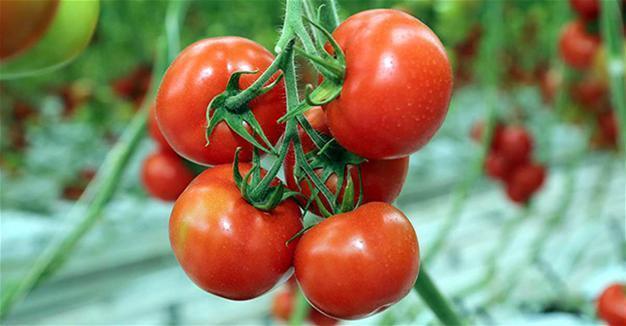Turkey seeks compromise over Russian ban on its tomatoes
ANKARA - Reuters
 In a bid to resolve a trade row with Russia, Turkey has proposed Moscow lifts its ban on imported Turkish tomatoes during periods when Russian growers are unable to produce their own.
In a bid to resolve a trade row with Russia, Turkey has proposed Moscow lifts its ban on imported Turkish tomatoes during periods when Russian growers are unable to produce their own.“We understand Russia would like to develop its domestic (tomato) production but they are in a position to continue trading with Turkey while doing that,” a senior Turkish official with knowledge of the matter told Reuters on May 26.
Ankara and Moscow have been working to normalize ties after relations soured following the downing of a Russian jet by Turkey in November 2015. However, some Russian restrictions on Turkish goods remain in place, including tomatoes.
Under the Turkish proposal, Moscow’s ban would remain at times when Russia was producing its own tomatoes, with its main harvest season during summer months.
“It would be sufficient for Turkey for Russia to close borders for exports during when they produce and then reopen when they can’t,” the official said.
It was not immediately clear how Moscow viewed the Turkish proposal, but Russian officials earlier this month said restrictions on tomato imports from Turkey would remain in place ‘in some form’ for the next three to five years.
“A solution on this issue still won’t be easy despite Turkey’s proposal,” another Turkish economy official said.
Russia was a key market for Turkish tomatoes, worth several hundred million dollars each year and Moscow has been losing up to $1.5 billion from the effective suspension of agricultural exports to Turkey, Russian agriculture minister Alexander Tkachev said last month.
The stop-start agricultural trade dispute is not limited to tomatoes. Ankara imposed prohibitively high import tariffs on Russian wheat from mid-March, but resumed purchases after a meeting of the countries’ presidents on May 3.
But earlier this week, analysts and traders told Reuters that Turkey had introduced new curbs on Russian wheat, limiting purchases to 20-25 percent of all import licenses issued.
Turkey’s economy ministry denied any curbs, but traders said the move was likely a reaction to Russia’s tomato ban.
Russian sunflower oil supplies to Turkey have also been affected by the latest limits, Russia’s Oil Union said.
Turkey is the largest buyer of Russian sunflower oil and second biggest importer of Russian wheat after Egypt.
















